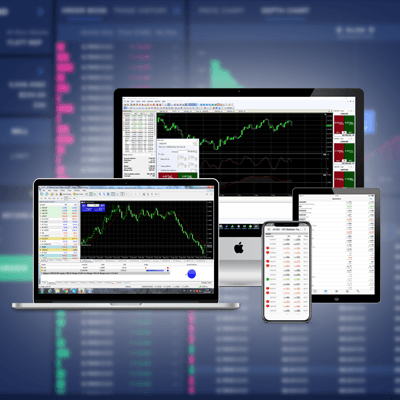Weekly Market Review - July 15-19
This week has been quite volatile for most of the financial markets. Japanese yen and Swiss franc have been the best performers, as investors are turning their attention to safe-havens. EUR/USD fell 0.35% over the week.
In the commodity market, gold and silver benefited from uncertainties surrounding the Sino-US trade disputes. Both metals have gained over 1.5% over the week.
In the crypto space, Bitcoin tumbled over 11%, as the US government has voiced concerns over Bitcoin and Facebook’s Libra. President Donald Trump and Treasury Secretary Steven Mnuchin hinted that the coins could be used for money laundering, terrorist financing, and other criminal activities.
Macroeconomic News
China’s GDP Slowed in Q2
China’s economic growth contracted in the second quarter of this year to a 27-year low. Despite everything, retail sales, industrial output, and fixed-asset investment beat economists’ expectations. The country’s GDP growth decelerated to 6.2% in the three months through June, compared to the same period in 2018. The economic performance was in line with forecasts but 0.1% lower than the growth recorded in the previous quarter.
Eurozone’s CPI Rose More Than Expected
Eurozone inflation beat analysts’ forecast in June, even though it didn’t touch the European Central Bank’s target at just below 2%. On Wednesday, Eurostat said that consumer prices in the 19 countries sharing the euro rose 1.3% year-on-year, compared to the expected growth figure at 1.2%. Compared to May, the inflation expanded 0.2%, also above expectations. Core inflation, which excludes the prices of food and energy, rose 1.3% year-on-year.
German Investors’ Sentiment Deteriorates
The sentiment among German investors declined more than expected this month. On Tuesday, the ZEW institute said that its monthly poll revealed that economic mood among investors dropped to -24.5 from June’s -21.1. Analysts anticipated the reading to decline to -22.3. Investors are worried about the trade tensions between the US and China, along with the US deteriorating relations with Iran. Besides, the pessimism is also fueled by a continued decline in German industrial orders.
US Retail Sales Beat Estimates
US retail sales rose more than expected in June, recording gains across most sub-categories. On Tuesday, the Commerce Department said that retail sales had increased by 0.4% in June after a similar growth in May, which was revised downward. Economists surveyed by Bloomberg expected an increase of 0.2% in June. Excluding cars and gasoline, the indicator rose 0.7%. The rebounding sales might put pressure on the Federal Reserve, which is expected to cut the interest rate this month.
EU Car Sales Decline in June
European auto sales tumbled 7.9% last month. Nissan, Volvo, and Fiat Chrysler were the worst performers. On Wednesday, the Association of European Carmakers said that car sales in the European Union and EFTA countries declined to 1.49 million in June, from 1.62 million in 2018. France and Spain saw their car sales declining by over 8%, while German and the UK recorded falls of 4.7% and 4.9% respectively. Nissan sales in the EU tumbled 26.6% in June.
US Jobless Claims Suggest Strong Labor Market
The number of American citizens filing applications for unemployment benefits noted a slight increase last week, suggesting that the labour market continues to be strong. The Labor Department said on Thursday that initial jobless claims rose 8,000 to a seasonally adjusted 216,000, which is in line with analysts’ forecasts. The growth in the previous week was revised down by 1,000. The four-week moving average, which is a more accurate measure, fell by 250 to 218,750.
Upcoming News to Watch
Next week on Thursday, the European Central Bank (ECB) will reveal its interest rate decision along with the monetary policy statement. The event will follow several important economic indicators planned for Wednesday. Thus, Germany and France will release their manufacturing, services, and composite purchasing managers index (PMI). Markit will publish the same indicators for the eurozone. Elsewhere, the US will report on its PMI indicators too.
The week will end with the US report on economic growth for the second quarter, which is expected to increase by 1.9% compared to the previous quarter.

Anatol has been writing for our news site for a year and is the newest member of our team. While he’s new to us, he’s certainly not new to trading with over 10 years’ experience being a professional financial journalist and working in the markets.

 News Home
News Home
 Privacy Policy
Privacy Policy
 About Us
About Us






